Queen Margaret University (QMU), located near Edinburgh, Scotland, is a modern university known for its person-centered and career-focused approach to education. Established in 1875, it initially provided education for working-class women. Today, QMU offers a wide range of programs, particularly in health sciences, creative arts, and business, and boasts a strong reputation in speech sciences.
| Acronym | QMU |
| Nickname | QMU |
| Motto / Slogan | Head, Heart and Hand |
| Colour | blue, silver, and black |
| Founded | 1875 |
| Undergraduate Programmes | |
| Postgraduate Programmes | 52 |
| Location | Musselburgh, Scotland, United Kingdom |
| Address | Queen Margaret University Edinburgh EH21 6UU |
Queen Margaret University's mission is to “foster intellectual capital with both a theoretical and practical focus, giving students and staff the confidence to make a real difference to the world around them”
Queen Margaret University's vision is to be a university of ideas and influence, fostering intellectual capital with a theoretical and practical focus to empower students and staff to make a difference in the world.
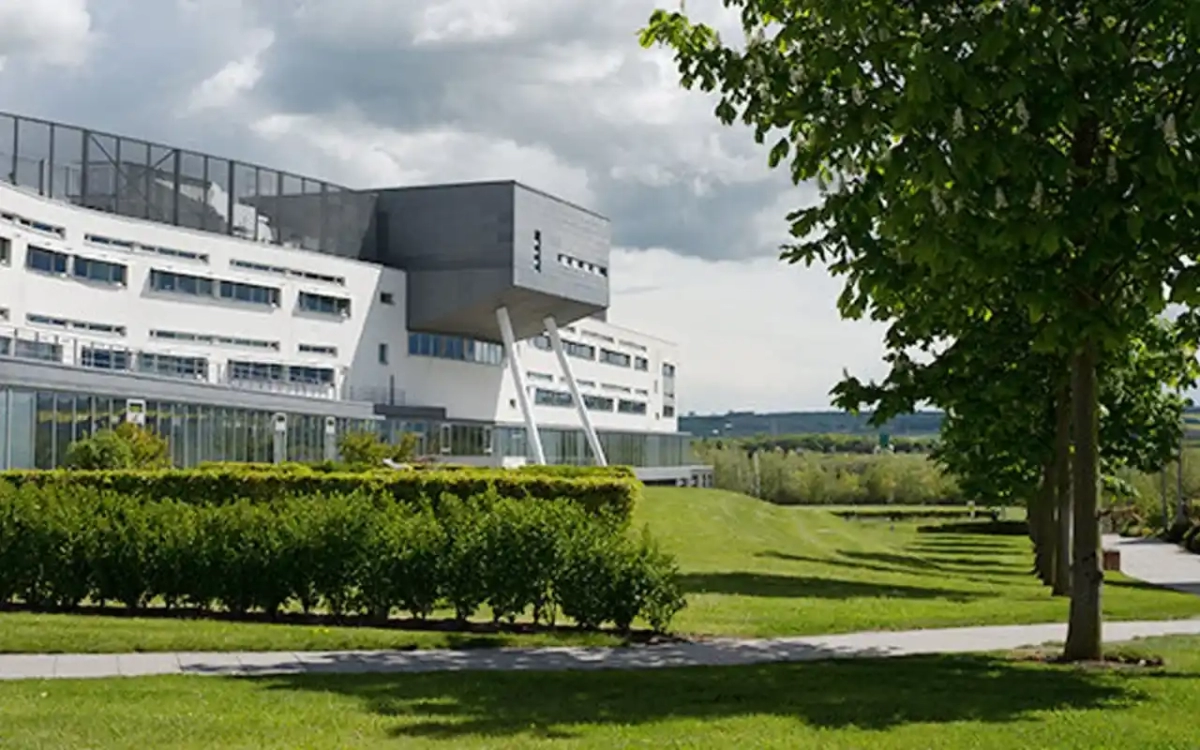
Queen Margaret University's primary objective is to contribute to a better society through education, research, and innovation, while fostering a supportive learning environment for students and staff.
Queen Margaret University delivers relevant degrees to prepare you for a successful and rewarding career. Offering the perfect blend of both theory and practice, many of our courses include practical work placements and/or are accredited by professional bodies. In the National Student Survey (NSS) 2025, QMU is ranked top amongst all five Edinburgh-based higher education institutions for overall student satisfaction.
We are in the top 6 of Scottish universities for the number of graduates in full-time employment 15 months after they have graduated. (Graduate Outcome Statistics 2022/3 published by HESA in 2025). We ranked top in Scotland for Career Prospects two years running. Our 'Careers for Life' service means that as a QMU graduate, you will continue to be able to call on our Careers team for advice throughout your life.
Located in beautiful landscaped grounds just 6 minutes’ away from the centre of Edinburgh, our modern campus has everything you need for a fulfilling and fun student experience. Our purpose-built facilities boast innovative spaces for teaching and learning, while our on-campus student accommodation offers a secure and comfortable living space just a moment’s walk away from your classes.
Our staff are renowned in their field and are actively involved in research activities, ensuring that our courses are up to date and relevant. In the 2025 Whatuni Student Choice Awards, QMU ranked 3rd in Scotland for its expert lecturers and high quality teaching standards. Queen Margaret University is home to strategic research that informs policy and practice which impacts everyday life.
Thanks to our size, you will never get lost in the crowd at QMU. There is a strong sense of community at our campus, and you will quickly get to know our staff and your fellow students. Plus, our broad range of societies and clubs means you will have plenty of opportunities to make lifelong friends.
As a student at Queen Margaret University, you will benefit from a range of teaching methods to enable you to make the most of your chosen course, including work-based learning and an online virtual learning environment.
Admission to our undergraduate programmes can be made by those holding a relevant diploma or other recognized qualification, such as
Entry requirements vary by course. Please check the course page for requirements.
The usual documents required are:
As part of your application you will need to submit to us:
If your documents are in any language other than English then they will need to be accompanied by a formal certified translation into English, by either the awarding institution or a sworn translator.
Students whose first language is not English are required to provide us with proof of their English language ability. More information on how to do this can be found on our English language requirements page.
If you have not yet graduated and don’t have your degree certificate, this can be sent to us at a later date.
POSTGRADUATE
Application form
Once complete you can submit your application to us and you will receive an automatic acknowledgement email confirming receipt of your application. You will also receive a QMU applicant ID number which you should keep a note of and quote in any correspondence to QMU.
Email: [email protected]
Phone : 01314740000, +44 131 474 0099,
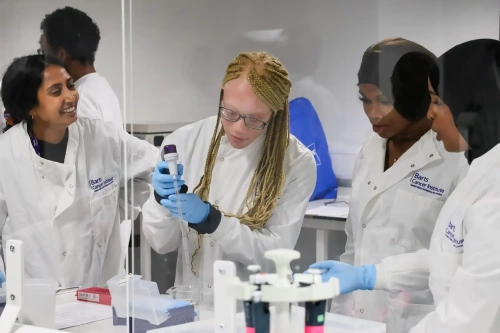
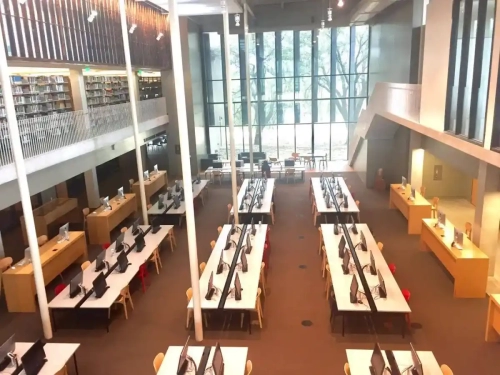
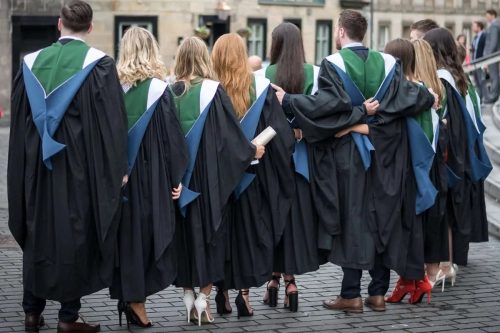
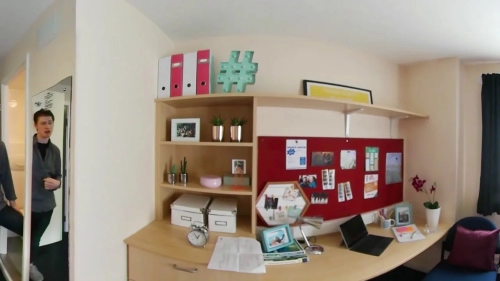
Help and Support: We offer a variety of ways to give you the help and support you may need in getting the most out of the Library Service, from how to contact us, or information on our opening hours to subject support, additional help for disabled users and specialized research support.
He was knighted in the New Year Honors List 2016 for services to the Scotti... read more
He has held the position of Clerk and Chief Executive of the Scottish Parliament since its inception in 1999, leading the delivery of all services to the Parliament alongside acting as its principal adviser on procedural and constitutional matters. Having worked in governmental organizations both in London and Scotland, he has built a reputation as an outstanding leader. He was involved in the constitutional group with responsibility for the referendum on establishing the Scottish Parliament and he went on to manage the Scotland Act which laid the foundation for the new constitutional framework.
Sir Paul also has a deep understanding of the higher education sector and its challenges. He served as a member of the University Court of Stirling from 2006-2013 – chairing the University’s Finance and Resources Committee from 2008-2012 – and as a member of the Economic and Social Research Council from 2009-2015. A fellow of the Royal Society of Edinburgh, he is also a Policy Leaders Fellow at the Centre for Science and Policy at the University of Cambridge and is a board member of Policy Scotland at the University of Glasgow. He champions both the importance of research in universities and of the student experience.
As founder of the social enterprise Community Clothing, Patrick is an advocate for sustainability and building strong communities through entrepreneurship. Brought up in Edinburgh, he has developed an international reputation as a champion of UK textile manufacturing, supporting local communities while producing high-quality, long-lasting garments. His book ’Less’, which was published in 2024 and is a Sunday Times Bestseller, details his commitment to reducing consumption and embracing circular, regenerative fashion.
Prior to joining QMU as a full-time academic Sara worked in several clinical NHS roles within Acute and Community settings in both Scotland and England and latterly undertook a CRAG (Clinical Resource and Audit Group) funded post within the NHS Fife Renal Service. She began her academic career as a visiting lecturer, progressing to full time Lecturer, Programme Leader, and Senior Lecturer within QMU.
She completed her clinically focused PhD in 2010 (part funded by the British Renal Society) which explored the effects of an intradialytic exercise programme on quality of life, functional and nutritional status of individuals receiving haemodialysis therapy and continues to lecture and contribute to research and publications in the areas of body composition and nutritional assessment.
She was appointed to the role of Deputy Head of DPPR (Dietetics, Nutrition, Biological Sciences, Physiotherapy, Podiatry and Radiography) in 2018 and during this time led the development, validation and launch of the online multi-professional postgraduate Advancing Practice in Health Framework.
We have a proud history of achievement and progress extending for well over a century. Founded in 1875, we have always been driven by the highest ideals and purposes, focusing on contributing in practical ways to improving people’s lives and serving the community.
The institution now named Queen Margaret University was established as the Edinburgh School of Cookery in 1875. This institution emerged in a period that was notable for real economic progress, but also characterised by many social and economic divisions and inequalities, and widespread poverty. The School was established as a voluntary effort to address two key problems facing so... read more
(1) To provide educational opportunities for women. The institution’s founders were part of the U.K.-wide mid Victorian "Women's Movement", which was a campaign for better education and improved career opportunities for females. A main element of this campaign was directed at securing equality of opportunity for school girls, but another purpose was to open up post-school education at both university and technical levels. To this point young women had been excluded from higher and technical education, with an inevitable consequence being widespread female poverty. (One of the key leaders of the women's movement was Queen Victoria's fourth daughter, Princess Louise, Duchess of Argyll, and she became the School's leading patron.)
(2) The need to bring about an improvement in diets, particularly the diets of working class families. The original lectures took place (before huge audiences) in the Royal Museum in Edinburgh’s Chambers Street, but it was at first peripatetic in nature, in that teaching staff went out with mobile gas and paraffin cooking equipment to give programmes of public lectures and demonstrations all over Britain, from the Shetlands to the Channel Islands. The first generation of lecturers were almost all young women aged in their early twenties and almost everywhere they went they drew large gatherings of women eager for instruction.
The first permanent site was in Shandwick Place, where the institution was based from 1877 to 1891. At this time the institution also operated a branch in Manchester to provide lectures to industrial communities throughout the north of England. As was intended by the founders, this branch eventually became independent and it is now a constituent part of Manchester Metropolitan University.
The main founders of the school were Christian Guthrie Wright and Louisa Stevenson (Louisa was sister of Flora Stevenson, the first female Chair of the Edinburgh School Board). These women were also largely responsible for leading the campaign to secure the admission of females to the University of Edinburgh. In setting up the School of Cookery, they were backed by various interest groups, but particularly enlightened local medical practitioners and Church leaders.